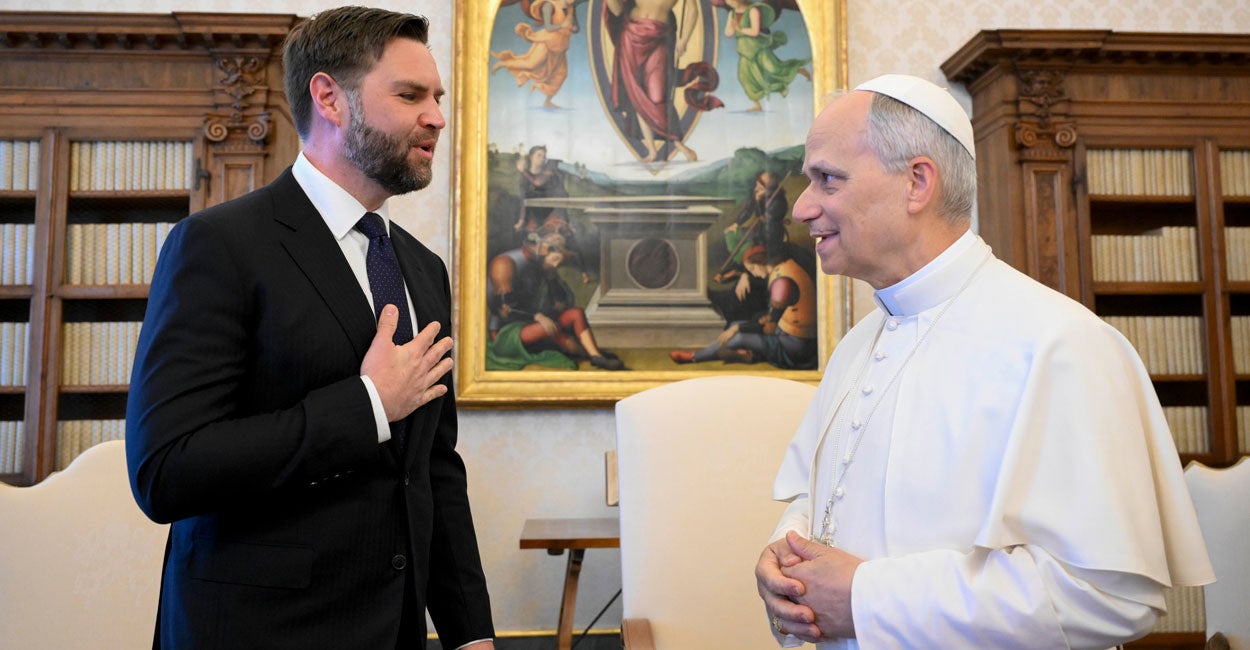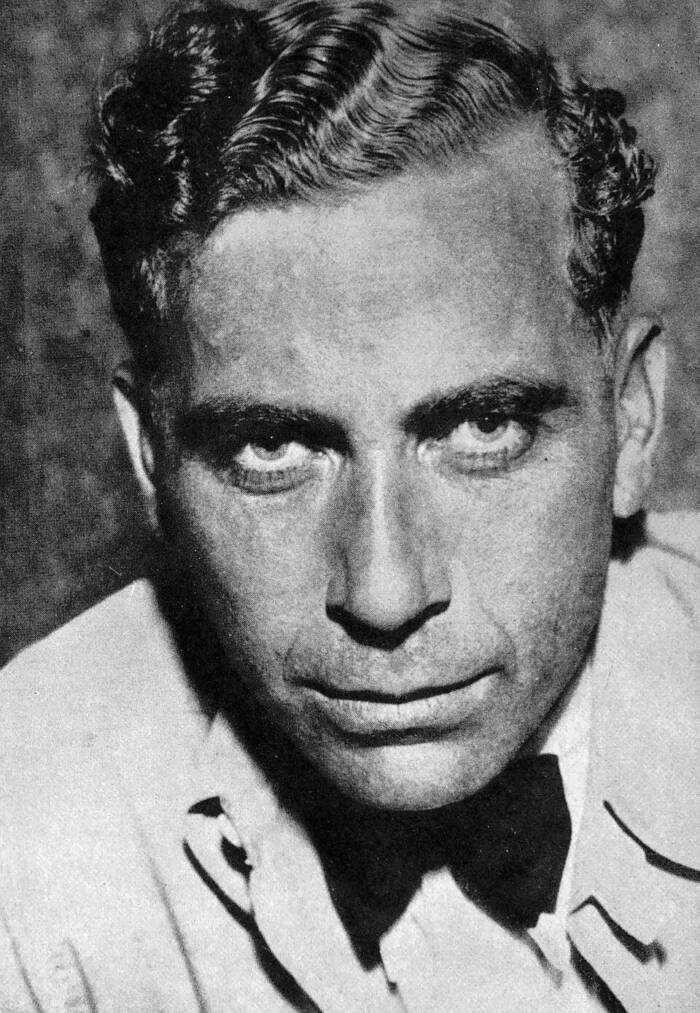0 Commenti
0 condivisioni
156 Views

Elenco
Elevate your Sngine platform to new levels with plugins from YubNub Digital Media!
-
Effettua l'accesso per mettere mi piace, condividere e commentare!
-
 YUBNUB.NEWSNEW: Prominent Dem Candidate Fantasized About Murdering Political Opponent, Disturbing Messages ShowJay Jones, the Democratic Party nominee for attorney general of Virginia, sent a series of disturbing text messages to a former colleague in which he suggested the states then-House Speaker Todd Gilbert0 Commenti 0 condivisioni 155 Views
YUBNUB.NEWSNEW: Prominent Dem Candidate Fantasized About Murdering Political Opponent, Disturbing Messages ShowJay Jones, the Democratic Party nominee for attorney general of Virginia, sent a series of disturbing text messages to a former colleague in which he suggested the states then-House Speaker Todd Gilbert0 Commenti 0 condivisioni 155 Views -
 YUBNUB.NEWSDoes Ohtanis Historic Pitching Debut Make Him Greater Than Babe Ruth?Los Angeles Dodgers superstar Shohei Ohtani makes his long-awaited postseason pitching debut today when the right-hander takes the mound at Citizens Bank Park against the Philadelphia Phillies in Game0 Commenti 0 condivisioni 156 Views
YUBNUB.NEWSDoes Ohtanis Historic Pitching Debut Make Him Greater Than Babe Ruth?Los Angeles Dodgers superstar Shohei Ohtani makes his long-awaited postseason pitching debut today when the right-hander takes the mound at Citizens Bank Park against the Philadelphia Phillies in Game0 Commenti 0 condivisioni 156 Views -
 YUBNUB.NEWSWhite House Takes Issue With Popes Comments on ImmigrationThe White House is disputing Pope Leo XIVs characterization this week of what he regards as the inhuman treatment of immigrants by the Trump administration. I would reject that there0 Commenti 0 condivisioni 156 Views
YUBNUB.NEWSWhite House Takes Issue With Popes Comments on ImmigrationThe White House is disputing Pope Leo XIVs characterization this week of what he regards as the inhuman treatment of immigrants by the Trump administration. I would reject that there0 Commenti 0 condivisioni 156 Views -
 WWW.UNIVERSETODAY.COMWe Can Do More Exoplanet Science By Understanding the Dark Edge of It's StarBy modeling the limb darkening of a star, astronomers can get a better measure of the transit depth of an exoplanet. This will allow us to get better measurements of the size of exoplanets.0 Commenti 0 condivisioni 159 Views
WWW.UNIVERSETODAY.COMWe Can Do More Exoplanet Science By Understanding the Dark Edge of It's StarBy modeling the limb darkening of a star, astronomers can get a better measure of the transit depth of an exoplanet. This will allow us to get better measurements of the size of exoplanets.0 Commenti 0 condivisioni 159 Views -
Dark fantasy ARPG with Souls-style invasions has a new playtest you can join nowDark fantasy ARPG with Souls-style invasions has a new playtest you can join now Amid the heavy hitters of Diablo 4, Path of Exile 2, and Last Epoch, we've seen some brilliant smaller ARPGs pop up recently. The Slormancer encourages outrageous combos, while Hell Clock takes us on a roguelike revenge romp. But newcomer Fractured Worlds, built by Laser Guided Games, finds a way to...0 Commenti 0 condivisioni 1K Views
-
 ALLTHATSINTERESTING.COMThe Little-Known Story Of The Bonus Army, The 20,000 Veterans Who Marched On Washington In 1932Click here to view slideshowAs the desperation of the Great Depression deepened in the United States, a small group of World War I veterans gathered in Portland, Oregon. In the spring of 1932, they hatched an idea:to ask that the government pay them their war bonuses scheduled to be released in 1945 early. The promised bonus was already known as the "Tombstone Bonus," since many of the veterans suspected that they would not live to see it. And as they struggled to find or keep jobs and support their families, they resolved to demand the bonuses that they'd earned on the battlefields of Europe. Before long, the movement born in Portland spread. Calling themselves the "Bonus Expeditionary Force" or the "Bonus Army" the veterans began to move east, picking up other groups of men along the way. Ultimately, as many as 20,000 men, some of whom were accompanied by their wives and children, arrived in Washington, D.C. to ask for their money.Though the government tolerated their presence at first, the Bonus Army was ultimately met with violence. The veterans were driven out and their encampments were burned. And though they would receive their bonuses early, the men of the Bonus Army still had to wait four more years to get paid. The 'Bonus Expeditionary Force' Arrives In WashingtonBy the spring of 1932, many Americans were desperate. The Great Depression was gripping the nation, and there seemed to be no end to the economic hardship in sight. For veterans of World War I, the situation was especially infuriating, as they had been promised a bonus for their services in 1924. But the government had decided not to pay it out until 1945. Then, in the spring of 1932, a veteran named Walter W. Waters stood up at a veterans' meeting in Portland, Oregon, and proposed an idea. He suggested that he and the others travel to Washington, D.C. and demand their bonuses in person. By May, Waters' idea had become popular, and he and 400 other veterans set out to march on Washington.Public DomainWalter W. Waters, the World War I veteran who became the leader of the Bonus Army.The Oregon men picked up groups of veterans from other states, and by June, over 1,000 protestershad arrived in Washington, D.C. Many had brought their wives and children, and they soon set up encampments in the nation's capital. According to the Herbert Hoover Library and Museum, President Herbert Hoover quietly ordered blankets, rations, and other supplies to be distributed to the men. But neither he nor Congress was inclined to pay out the bonuses early. Veterans' benefits took up 25 percent of the year's budget, and the government didn't have the money for anything more. Indeed, when the House of Representatives passed a bill to pay out the bonuses early, Hoover threatened to veto it. He never had to, as the Senate rejected the bill on June 17. But while many members of the Bonus Army gave up at that point and went home, many more stayed and others arrived. In July 1932, their numbers swelled to as many as 20,000. And federal authorities in Washington, D.C. decided to take action. The Veterans And The Government Clash In Washington, D.C.Tensions steadily built between the veterans and the federal authorities. Then, on July 28, things escalated into violence. PBS reports that the veterans threw bricks at the police; the Hoover Museum states that the police had encountered resistance when they tried to clear an encampment. In any case, Hoover's reaction was the same. He ordered the secretary of war to "surround the affected area and clear it without delay."Two of the men sent to clear the encampments were Douglas MacArthur and George Patton. Both men would play major roles in the next global conflict, World War II, but for the moment, they were tasked with clearing the veterans out of Washington, D.C. World History ArchiveMembers of the Bonus Army protesting on the steps of the U.S. Capitol in 1932.The men, however, did not want to leave. They fought back, leading the government forces to menace the Bonus Army with tanks, tear gas, machine guns, bayonets, clubs, and swords. Though many of the government soldiers were unhappy with their task, some thought that the veterans deserved it. "We hate this more than they do," one purportedly said, "but they brought it on themselves."MacArthur also thought that the veterans of the Bonus Army needed to be dealt with. When the president sent word that he did not want MacArthur to escalate things by pursuing the Bonus Army across a bridge into their main encampment, MacArthur reportedly chose to ignore the instructions. His aide, another future World War II commander named Dwight D. Eisenhower, remembered MacArthur saying that: "he was too busy... [to be] bothered by people coming down and pretending to bring orders." Everett Collection Inc.General MacArthur and his aide, Dwight D. Eisenhower, oversee the breaking up of Bonus Army encampments. 1932. The government forces pursued the Bonus Army into the encampment, where a fire soon began. MacArthur later claimed that he had been prohibited from burning the camps and that they had been set ablaze by the veterans but it's unknown who started the fire. Regardless of who was responsible, the burning of the shanty town became a stunning symbol of the government's crackdown on the Bonus Army. It also symbolized the end of their resistance. MacArthur destroyed the camps that remained, and the last few members of the Bonus Expeditionary Force left Washington, D.C. The Enduring Impact Of The Bonus ArmyAfter the Bonus Army left Washington, many politicians stood by their actions. Hoover, for his part, claimed that most of the protestors were not veterans but "Communists and persons with criminal records."MacArthur seconded the president, claiming that just 10 percent of the marchers were veterans and that their movement had been "animated by the essence of revolution." The public reaction, however, was mixed. Although many newspapers sided with the president, others found the attack on unarmed veterans repulsive. And at least one politician agreed that clearing out the Bonus Army was bad politics. When presidential candidate Franklin D. Roosevelt heard the news, he purportedly stated: "Well, this elects me."Roosevelt would indeed be elected president later that year. And though he would veto a bill to give the veterans their bonuses, Congress overrode his veto in 1936, and the men were finally paid.Meanwhile, the protest of the Bonus Army had another impact as well. It helped lead to the G.I. Bill. Passed during World War II, this legislation sought to take better care of veterans by allocating funds for their college education, unemployment insurance, and housing. In the gallery above, look through photos of the Bonus Army and its 1932 march on Washington, D.C. After reading about the Bonus Army, discover the story of Jacob Coxey's Army, when 500 people marched on Washington, D.C. to protest a devastating 1894 depression. Or, see how the 1968 Democratic Convention descended into chaos when protestors clashed with the police. The post The Little-Known Story Of The Bonus Army, The 20,000 Veterans Who Marched On Washington In 1932 appeared first on All That's Interesting.0 Commenti 0 condivisioni 158 Views
ALLTHATSINTERESTING.COMThe Little-Known Story Of The Bonus Army, The 20,000 Veterans Who Marched On Washington In 1932Click here to view slideshowAs the desperation of the Great Depression deepened in the United States, a small group of World War I veterans gathered in Portland, Oregon. In the spring of 1932, they hatched an idea:to ask that the government pay them their war bonuses scheduled to be released in 1945 early. The promised bonus was already known as the "Tombstone Bonus," since many of the veterans suspected that they would not live to see it. And as they struggled to find or keep jobs and support their families, they resolved to demand the bonuses that they'd earned on the battlefields of Europe. Before long, the movement born in Portland spread. Calling themselves the "Bonus Expeditionary Force" or the "Bonus Army" the veterans began to move east, picking up other groups of men along the way. Ultimately, as many as 20,000 men, some of whom were accompanied by their wives and children, arrived in Washington, D.C. to ask for their money.Though the government tolerated their presence at first, the Bonus Army was ultimately met with violence. The veterans were driven out and their encampments were burned. And though they would receive their bonuses early, the men of the Bonus Army still had to wait four more years to get paid. The 'Bonus Expeditionary Force' Arrives In WashingtonBy the spring of 1932, many Americans were desperate. The Great Depression was gripping the nation, and there seemed to be no end to the economic hardship in sight. For veterans of World War I, the situation was especially infuriating, as they had been promised a bonus for their services in 1924. But the government had decided not to pay it out until 1945. Then, in the spring of 1932, a veteran named Walter W. Waters stood up at a veterans' meeting in Portland, Oregon, and proposed an idea. He suggested that he and the others travel to Washington, D.C. and demand their bonuses in person. By May, Waters' idea had become popular, and he and 400 other veterans set out to march on Washington.Public DomainWalter W. Waters, the World War I veteran who became the leader of the Bonus Army.The Oregon men picked up groups of veterans from other states, and by June, over 1,000 protestershad arrived in Washington, D.C. Many had brought their wives and children, and they soon set up encampments in the nation's capital. According to the Herbert Hoover Library and Museum, President Herbert Hoover quietly ordered blankets, rations, and other supplies to be distributed to the men. But neither he nor Congress was inclined to pay out the bonuses early. Veterans' benefits took up 25 percent of the year's budget, and the government didn't have the money for anything more. Indeed, when the House of Representatives passed a bill to pay out the bonuses early, Hoover threatened to veto it. He never had to, as the Senate rejected the bill on June 17. But while many members of the Bonus Army gave up at that point and went home, many more stayed and others arrived. In July 1932, their numbers swelled to as many as 20,000. And federal authorities in Washington, D.C. decided to take action. The Veterans And The Government Clash In Washington, D.C.Tensions steadily built between the veterans and the federal authorities. Then, on July 28, things escalated into violence. PBS reports that the veterans threw bricks at the police; the Hoover Museum states that the police had encountered resistance when they tried to clear an encampment. In any case, Hoover's reaction was the same. He ordered the secretary of war to "surround the affected area and clear it without delay."Two of the men sent to clear the encampments were Douglas MacArthur and George Patton. Both men would play major roles in the next global conflict, World War II, but for the moment, they were tasked with clearing the veterans out of Washington, D.C. World History ArchiveMembers of the Bonus Army protesting on the steps of the U.S. Capitol in 1932.The men, however, did not want to leave. They fought back, leading the government forces to menace the Bonus Army with tanks, tear gas, machine guns, bayonets, clubs, and swords. Though many of the government soldiers were unhappy with their task, some thought that the veterans deserved it. "We hate this more than they do," one purportedly said, "but they brought it on themselves."MacArthur also thought that the veterans of the Bonus Army needed to be dealt with. When the president sent word that he did not want MacArthur to escalate things by pursuing the Bonus Army across a bridge into their main encampment, MacArthur reportedly chose to ignore the instructions. His aide, another future World War II commander named Dwight D. Eisenhower, remembered MacArthur saying that: "he was too busy... [to be] bothered by people coming down and pretending to bring orders." Everett Collection Inc.General MacArthur and his aide, Dwight D. Eisenhower, oversee the breaking up of Bonus Army encampments. 1932. The government forces pursued the Bonus Army into the encampment, where a fire soon began. MacArthur later claimed that he had been prohibited from burning the camps and that they had been set ablaze by the veterans but it's unknown who started the fire. Regardless of who was responsible, the burning of the shanty town became a stunning symbol of the government's crackdown on the Bonus Army. It also symbolized the end of their resistance. MacArthur destroyed the camps that remained, and the last few members of the Bonus Expeditionary Force left Washington, D.C. The Enduring Impact Of The Bonus ArmyAfter the Bonus Army left Washington, many politicians stood by their actions. Hoover, for his part, claimed that most of the protestors were not veterans but "Communists and persons with criminal records."MacArthur seconded the president, claiming that just 10 percent of the marchers were veterans and that their movement had been "animated by the essence of revolution." The public reaction, however, was mixed. Although many newspapers sided with the president, others found the attack on unarmed veterans repulsive. And at least one politician agreed that clearing out the Bonus Army was bad politics. When presidential candidate Franklin D. Roosevelt heard the news, he purportedly stated: "Well, this elects me."Roosevelt would indeed be elected president later that year. And though he would veto a bill to give the veterans their bonuses, Congress overrode his veto in 1936, and the men were finally paid.Meanwhile, the protest of the Bonus Army had another impact as well. It helped lead to the G.I. Bill. Passed during World War II, this legislation sought to take better care of veterans by allocating funds for their college education, unemployment insurance, and housing. In the gallery above, look through photos of the Bonus Army and its 1932 march on Washington, D.C. After reading about the Bonus Army, discover the story of Jacob Coxey's Army, when 500 people marched on Washington, D.C. to protest a devastating 1894 depression. Or, see how the 1968 Democratic Convention descended into chaos when protestors clashed with the police. The post The Little-Known Story Of The Bonus Army, The 20,000 Veterans Who Marched On Washington In 1932 appeared first on All That's Interesting.0 Commenti 0 condivisioni 158 Views -
Heres how to clean your laptop screen without damaging itHow to clean your laptop screen without damaging it Recently, as I was editing an article, I noticed an accent over an “a” that definitely shouldn’t have been there. I backspaced to no avail and even went so far as to make sure my Spanish keyboard wasn’t turned on by mistake. Turns out it was a fleck of dust or dirt, which is how I knew it was...0 Commenti 0 condivisioni 1K Views
-
Microsofts adding an ad-supported tier for Xbox Cloud GamingMicrosoft's adding an ad-supported tier for Xbox Cloud Gaming Xbox is planning to add a free, ad-supported tier to its cloud gaming service. That means you should be able to stream certain games without paying.The Verge broke the news, citing sources familiar with Microsoft's plans. The tech site reported that Microsoft was getting ready to...0 Commenti 0 condivisioni 1K Views
-




